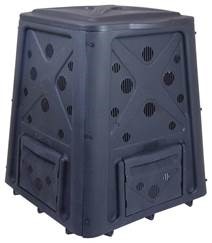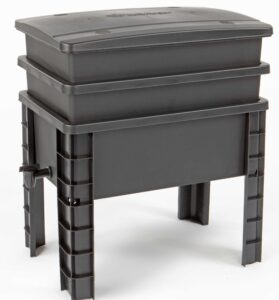Join us for free classes to beautify your home and garden, conserve water and reduce waste.
Register for our webinars, which are 45-minutes followed by a 15-minute period to answer questions. Or attend our in-person workshops which are 1.5-hours, require no registration and are held at libraries, parks, and other community venues. Spanish webinars (seminarios web) are also offered. Compost bins will be available for purchase after each class.
Workshops
Composting 101
Learn the basic techniques of backyard composting, worm composting, water-wise gardening, grasscycling, and edible gardening.
Organic Gardening 101
Learn the simple techniques of organic gardening, drought-tolerant landscaping, and integrated pest management to cultivate your garden.
Webinars
Intro to Composting
Learn about backyard and worm composting to create a rich soil amendment to nourish your garden.
Water-Wise Gardening
Create a beautiful drought-tolerant landscape and learn about grasscycling to fortify your lawn.
Small-Space Gardening
Learn to grow plants in containers and set up a small-space worm composting system.
Organic Gardening
Build healthy soil, grow herbs and vegetables, and address plant pests and diseases using organic methods.
Seminarios Web
Spanish Webinars
Compost Bins
Sale of compost bins will be offered online at the below discounted prices to our webinar attendees after the lecture. Take a class to learn smart gardening practices to nourish your garden and beautify your home!
Backyard Compost Bin – $40
Limit two bins per household. Price is subject to change.
Specifications:
- Dimensions – 28″L x 28″W x 32″h (assembled)
- Weight – 27 lbs
- Volume – 11.5 cubic feet
- Sliding door for easy compost removal
- Snap together assembly
- Made from high density polyethylene, 50% recycled content

Worm Compost Bin – $65
Limit two bins per household. Price is subject to change.
Specifications:
- Dimensions – 22 3/4″L x 15 3/4″W x 25.5″h (assembled)
- Weight – 15 lbs
- Volume – 2.0 cubic feet
- Snap together assembly
- Made from 100% recycled plastic
- Weather, rot, and rodent resistant
- Kit includes the worm bin, bedding materials, and instructions
- Unique stacking design makes castings easy to harvest

Worm bins include African Red Worms (Eisenia fetida), also known as Red Wigglers, the most common type of composting worm. They process large amounts of organic matter (up to half their body weight per day), reproduce rapidly, and are very tolerant of variations in soil conditions. As nature’s soil aerators, worms improve and condition the soil as they burrow in search of food. Composting worms excrete a valuable natural fertilizer (called castings), which contain 5 times the nitrogen, 7 times the phosphorus, 3 times the magnesium, 11 times the potash, and 1.5 times the calcium as are normally found in 6 inches of top soil. Other names for Red Wigglers include Tiger worms, Garlic worms, Manure worms, and Brandling worms.
Worm bins include African Red Worms (Eisenia fetida), also known as Red Wigglers, the most common type of composting worm. They process large amounts of organic matter (up to half their body weight per day), reproduce rapidly, and are very tolerant of variations in soil conditions. As nature’s soil aerators, worms improve and condition the soil as they burrow in search of food. Composting worms excrete a valuable natural fertilizer (called castings), which contain 5 times the nitrogen, 7 times the phosphorus, 3 times the magnesium, 11 times the potash, and 1.5 times the calcium as are normally found in 6 inches of top soil. Other names for Red Wigglers include Tiger worms, Garlic worms, Manure worms, and Brandling worms.